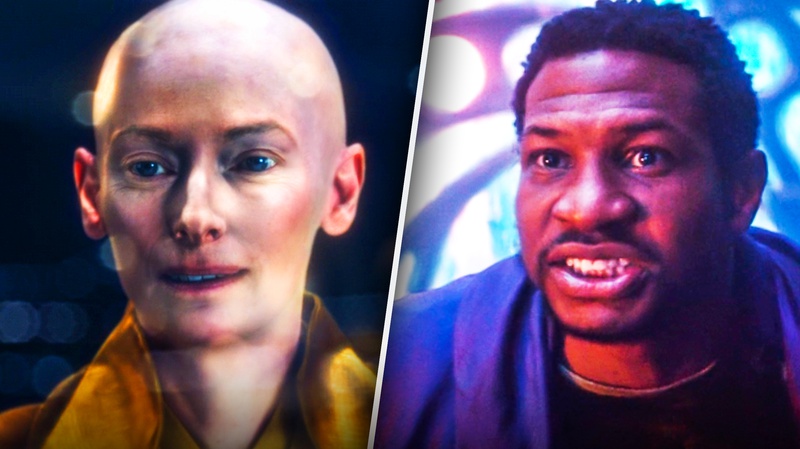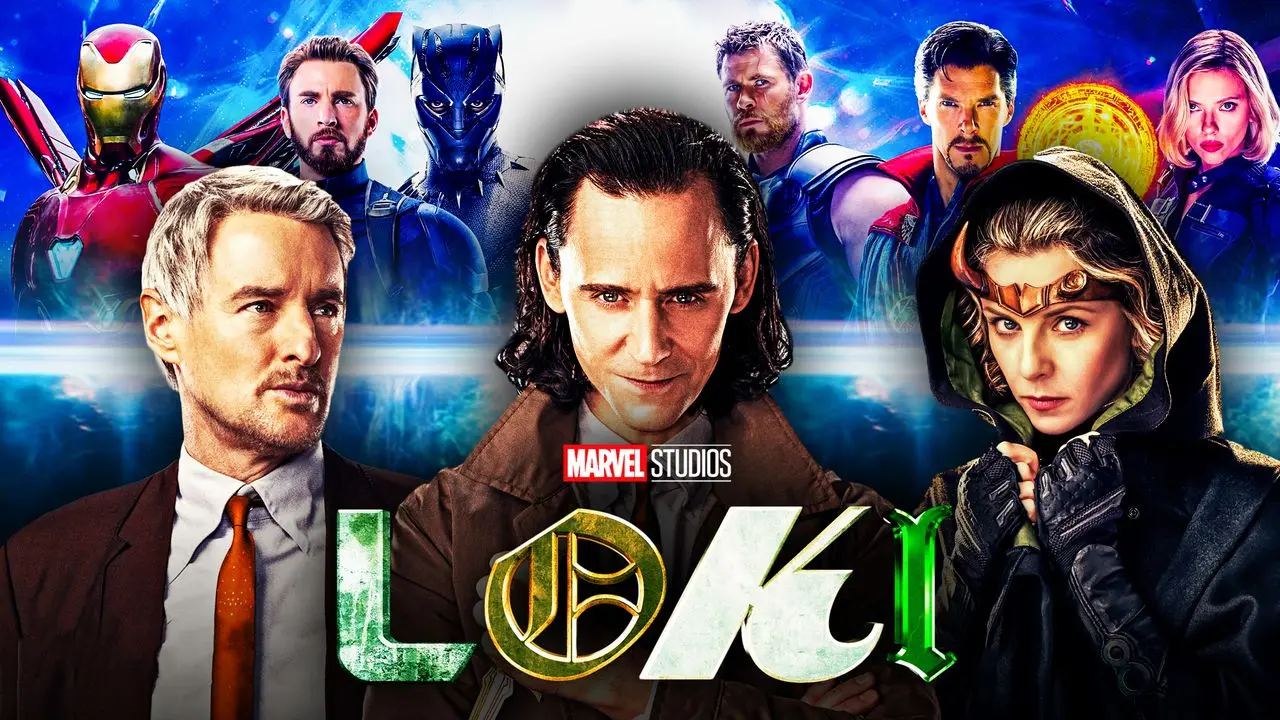How Loki Just Made Doctor Strange a Better MCU Movie

When Loki’s finale ended with the shattering of the Sacred Timeline and the multiverse unleashed, it made one thing very clear: there’s a lot to unpack.
The first train of thought is likely to turn towards Doctor Strange in the Multiverse of Madness, a film in which promises exploration of the many concepts Loki just introduced to the world. That aside, plenty of questions remain about how all of these inner-workings function.
Multiverse. Time travel. Dimensions. All concepts like these were first brought up in 2016’s Doctor Strange. That film introduced audiences to The Ancient One and watched a pompous surgeon become one of Earth’s key protectors as a newly appointed sorcerer.
As the MCU tends to do, fleshing out old concepts has retrospectively improved past projects. WandaVision put a completely new lens on Avengers: Age of Ultron. The Falcon and the Winter Soldier redefined that Avengers: Endgame conversation between Sam Wilson and Steve Rogers.
With all the new knowledge provided to fans by Loki, as well as the assumed exploration of those various concepts in the many MCU projects to have come after, let’s dive into how the series enhanced the timeline and multiverse elements of Doctor Strange.
THE VAST MULTIVERSE

After getting into a catastrophic car accident, Stephen Strange loses control of his hands; the very thing that makes him a brilliant surgeon. This sets him on a journey, not out of self-discovery, but to find some miracle cure to his injuries.
It’s here where he accidentally stumbles upon Tilda Swinton's The Ancient One in Kamar-Taj, and needless to say, their first meeting doesn’t go as planned. In fact, the arrogant former doctor gets a stern lecture, coupled with an out-of-body experience to boot.
As Strange journeys through dozens of dimensions, The Ancient One asks him a number of mind-bending questions:
“You think that this material universe is all there is? What is real? What mysteries lie beyond the reach of your senses? At the root of existence, mind and matter meet. Thoughts shape reality. This universe is only one of an infinite number. Worlds without end [...] Who are you in this vast multiverse, Mr. Strange.”
This is the very first mention of the big M-word in the MCU. Mentioning the multiverse was extremely significant, as this laid the very foundation of alternate realities existing.
When she says “this universe is one of many,” it’s hard to know if she is referring to the Timeline concept and its many branches as explored in Loki, or alternate dimensions. The latter is something that fits the visuals given to viewers in the moment, where fans can also spot a brief glimpse of the Quantum Realm.
DIMENSIONAL CONFUSION

Dimensions, occasionally referred to as realms, are a confusing topic. In Doctor Strange and other outings like Ant-Man and The Wasp, they are portrayed as a completely different beast than the timelines. For example, let's look at the Dark Dimension.
When it comes to Doctor Strange, the Dark Dimension is the key source of conflict. This is mainly due to Kaecilius, The Ancient One’s former understudy, drawing his power from it. The Dark Dimension also houses an entity of unfathomable power named Dormammu.
Kaecilius is pretty proud of his new master, as he often gloats about his dimension’s superiority:
“Our Universe [Earth] grows cold and perishes. But The Dark Dimension is a place beyond time.”
The takeaway is the fact that his dimension “is a place beyond time.” This is an indication of this place, unlike most that have been referenced or seen in the MCU (no matter how brief), not residing within the Timeline.
This makes sense, seeing as the whole resolution to Dormammu’s threat was the introduction of time itself, indicating that the very concept of time didn’t exist before Strange had brought it there. This means the Dark Dimension as a whole couldn’t be housed within the timeline in any way.
As for how the to-be Sorcerer Supreme was able to use the Time Stone in a place where time doesn’t exist, it is likely due to the bridge between Earth and the Dark Dimension still being open. This would have theoretically allowed the Time Stone to link back to the timeline in order to draw and utilize its power for the good doctor in need.
There’s no doubt that out of all of the crazy concepts within the MCU, the logistics and technicalities of dimensions and their relation to both the timeline and the multiverse, need a little more time devoted to explaining them.
There's also the idea of planes, such as the Astral Plane, explored within the film. From the evidence provided by the current slate of films and Disney+ shows, it would seem that it is simply just another word for dimension––or realm, depending on what mood the writer is in.
TEMPORAL MANIPULATIONS

Talking about the resolution of the movie bring the key commonality between Doctor Strange and Loki: time.
The 2016 film is the first glimpse fans had of the Time Stone. Encased within the Eye of Agamotto, the elemental crystal is consistently seen in use on-screen by Stephen Strange.
The first time audiences see its powers exercised is when Strange tests it on a bitten apple. He is able to turn time back and forth, transitioning between the full and the bitten fruit. The same concept is seen at the end of the film when it’s utilized on a larger scale to save all of Hong Kong.
Understanding how the Time Stone works seems simple enough thanks to those visual examples. While Strange got a kick out of it, Mordo did not:
"Temporal manipulations can create branches in time. Unstable dimensional openings. Spatial paradoxes! Time loops! You want to get stuck reliving the same moment over and over forever or never having existed at all?"
"Temporal manipulations can create branches in time,” is a fancy way of explaining exactly what the Time Variance Authority is trying to keep from happening. That said, if Loki’s encounter with Sif is anything to go by, the TVA seems to have found a way to create and sustain a time loop for their own purposes.
Those other warnings remain scary, time loops included. Could what Mordo have been warning Strange about be instances of what Loki director Kate Herron recently mentioned when elaborating on the Timeline and how it works? According to Herron, after all those timelines have branched out a dozen or so times, you can see that those “different separate trees… are now connecting.”
This certainly sounds like a time loop in the making. It’s hard to comprehend what may occur if two completely separate branches end up connecting in any way, but if Mordo's warnings are anything to go off of, it can't be good.
THE ANCIENT ONE

Then, there’s The Ancient One’s death.
Tilda Swinton's Sorcerer Supreme goes out in a beautiful scene, where just before her time is up, she gives her last speech to Strange:
“Time is relative. I've spent so many years peering through time looking at this exact moment, but I can't see past it. I've prevented countless terrible futures, and after each one there's always another. And they all lead here, but never further... As you well know, sometimes one must break the rules in order to serve the greater good... Only together [Strange & Mordo] do you stand a chance at stopping Dormammu."
Right off the bat, she mentions spending many years “peering through time,” in order to “prevent countless terrible futures:” branches on timelines that didn’t get the chance to occur. This sounds an awful lot like what He Who Remains has been successfully doing, though on a much larger scale.
It’s not clear if, in order to peer through those many futures, she was utilizing the Time Stone or that of Dark Dimensional power. The use of Dormammu’s power is a real option, seeing as the entire conversation is rooted in an acceptance of having broken the rules for the right reason, like using forbidden magic. At the end of the day though, she basically just did the same trick that Doctor Strange performed on Titan in Avengers: Infinity War.
That said, why can't she see past the moment of her death? There’s no real footing, especially with everything fans know to this point, as to why this would be an issue. If she used the Time Stone, theoretically it isn’t linked to the user’s life force—a hypothetical situation that would fit within the idea of not being able to see past one’s expiration date.
Unless Doctor Strange had the same limitations and didn’t tell anyone, this is a twist that could put a dark spin on things.
GOD OF STORIES

The impact that Loki has had on the MCU cannot be understated.
Not only did it set up the next decade of storytelling, but it provided a fresh lens to look through when examining movies that have already been previously released. After all, Loki does call himself the God of Stories for a reason.
With Doctor Strange operating on a new level, where does that leave Avengers: Infinity War? Will Avengers: Endgame ever be the same again? The re-examinations are just beginning.
Both Loki and Doctor Strange are streaming now on Disney+.

No comments: